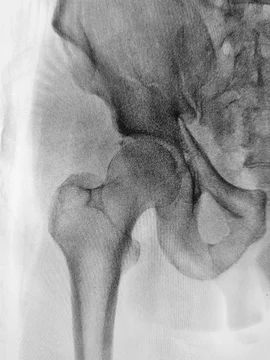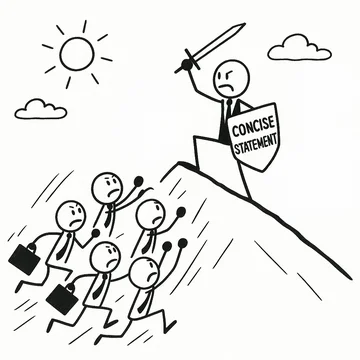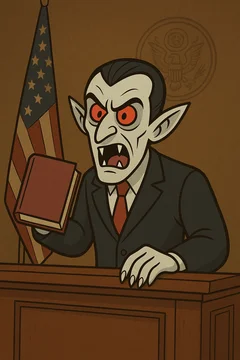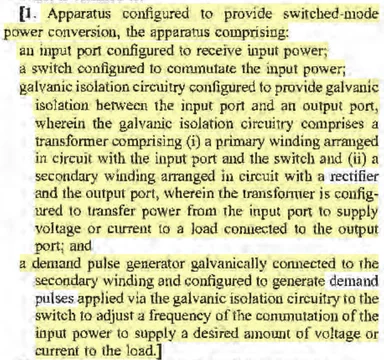We've talked quite a bit on the blog about navigating the concise statement of facts in summary judgment briefing. Judges Connolly, Noreika, Williams, Burke, and Hall all require one, and it's a common—yet severe!—stumbling block in the district which has hobbled many a fine brief.

Indeed, we talk about it so much that you could (almost) be forgiven for thinking that all of our judges require such a statement with their summary judgment briefing.
Judge Andrews, however, has never adopted the practice and actually does not allow parties to submit separate statements of fact (or at least, not ones that otherwise expand the page limits). He made this point quite clearly in an order last week responding to a motion to strike such a statement:
Defendant requests that I strike Plaintiffs rogue statement of uncontested facts, which Plaintiff opposes. (D.I. 197 , 198 ). I expect counsel to know my practices, whether written or unwritten. My practice for summary judgment motions does not permit what Plaintiff did. There is nothing in the scheduling order of this case or the later form order on the Courts website that would serve as encouragement for Plaintiff to do what it did. Neither, however, is there anything expressly prohibiting what Plaintiff did. Plaintiffs statement of facts, which has 12 pages of text, is (by eyeball) about 8 pages of facts that are scattered throughout its opening brief with about 4 pages of citations in support, which are omitted from the opening brief. Thus, Plaintiff has gained a 4-page advantage by committing something more akin to a traffic violation than a felony. I think the proportionate response is not to strike the statement, but to dock Plaintiff four pages on its Answering Brief. IT IS ORDERED that Plaintiffs Answering Brief is limited to 36 pages.
Election Sys. & Software, LLC v. Smartmatic USA Corp., C.A. No 18-1259-RGA (D. Del. Jan 20, 2023) (Oral Order)
In case you're interested, the plaintiff defended their statement of facts by noting that it was "in line with the standard practice in Chief Judge Connolly’s patent cases and in other jurisdictions." Id., D.I. 198.
On the whole it appears that the plaintiff got off fairly lightly here (at least compared to those who err in the other direction) but now that the rule has been set out plainly and a party can no longer say "neither is there anything expressly prohibiting what Plaintiff did" I would not be at all surprised to see harsher penalties for future failures.
If you enjoyed this post, consider subscribing to receive free e-mail updates about new posts.




